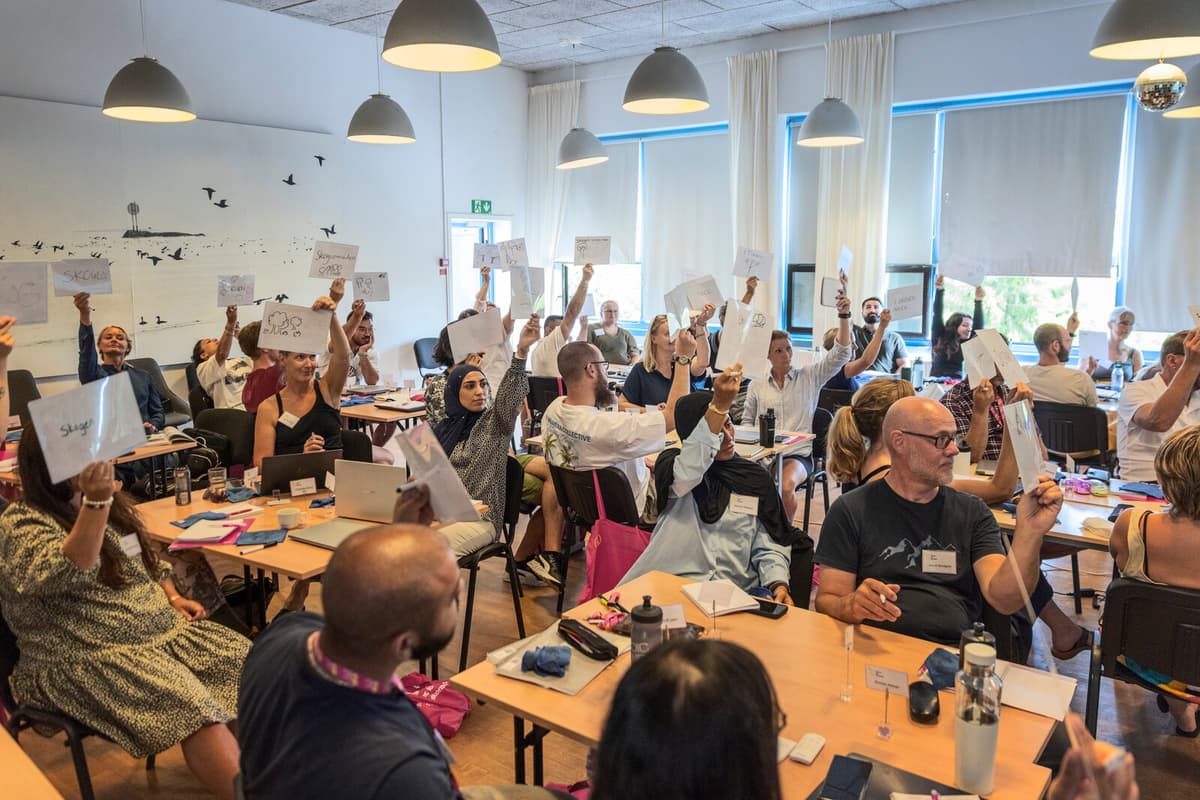It is warm inside the hall at Stensunds folk high school outside Trosa. In a corner, a fan is humming and several students are fanning themselves with a block or a piece of paper in front of their face as they listen to instructions for the next exercise, which is about planning a lesson.
Out of over 1,700 applicants, the nearly 50 academics, who in the middle of the summer holiday have once again sat down in a school bench, have been admitted to the leadership program organized by the Teach for Sweden foundation. It is a work-integrated education in collaboration with Luleå University of Technology during ten intensive July days.
Great breadth among participants
In a few weeks, they will start working at secondary schools around the country – where they one day a week get a paid study day and can thus become qualified teachers after two years.
They already have the subject knowledge required, so they get a leadership training where we focus on how to be a skilled leader and teacher, says Fredrik Lundgren from Teach for Sweden.
Among the participants, there is a great breadth. Some have had high positions in the business world, others have worked for a few years and do not feel that they have found the right fit. Many are taking a significant pay cut.
One may go down perhaps a third or more. They make big changes in life for this.
The foundation's mission is to operate in areas where they are needed most, and the teachers are therefore employed in schools with particularly large challenges. One who is changing careers is 34-year-old Isabell Englund from Trelleborg. Previously, she has mainly worked with pharmaceutical development, but now looks forward to working as a teacher at a secondary school in Skurup.
– 20,000 children who finish ninth grade lack eligibility for high school. There I want to help, says Isabell Englund, who has been met with mixed reactions.
Some say "wow, how fun". Others ask how you think.
Difference economically
She admits that it will be a big difference economically, at least until one can work up the salary.
One needs money to live, but one does not need as much as some have. There are other things that are more important.
Fredrik Waldur, 29, is a civil engineer in technical nanoscience, but will soon start working at a school in Järfälla. He has mainly received positive reactions and is convinced that he is making the right choice.
He thinks it feels meaningful in a way that his previous work did not.
Faith in the future is the most important thing I want to try to convey to the students, that they in some way feel that they have a chance in life. That's the kind of teacher I want to be.
You're starting in a month, does it feel scary?
Nervous, but not scary. Yes, a little scary maybe. Or it's clear, it would have been unreasonable otherwise, he says and laughs.
The proportion of ninth-graders who do not become eligible for high school is increasing. In the cohort that left secondary school in the spring of 2024, it was 16.3 percent – nearly 20,000 students – who did not meet the grade requirements.
The proportion of ineligible students increased by 1.5 percentage points from the previous year. The subject in which most students fail is mathematics.
For those who do not meet the eligibility requirements, a place on introduction programs is offered.
Source: Skolverket






